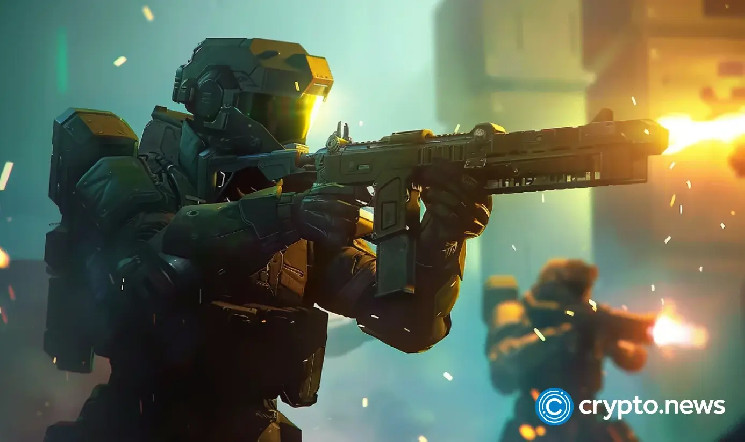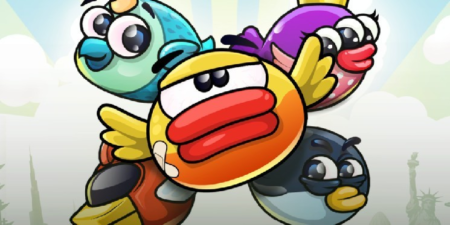Disclosure: The views and opinions expressed here belong solely to the author and do not represent the views and opinions of crypto.news’ editorial.
Mainstream gaming is ripe for direct community involvement, and web3 governance through decentralized autonomous organizations, or DAOs, is the way to solve this. Consider the controversy surrounding Helldivers 2 and its eventual resolution.
You might also like: AI will save web3 gaming’s competitive landscape | Opinion
Helldivers 2 is the biggest hit of the year in gaming so far. The cooperative third-person shooter was launched on Steam and Sony PlayStation by ArrowHead Studios, a relatively unknown indie developer. The immense popularity of Helldivers 2 caught everyone by surprise, presumably even ArrowHead, whose previous sleeper hit was the Norse-mythology-themed action-adventure game Magicka, released in 2011.
The February launch of Helldivers 2 was initially plagued by overwhelmed servers (a sure sign of success); to date, the game has sold more than 12 million copies, making it the fastest-selling PlayStation game ever.
A big reason for the game’s success is its excellent execution of familiar gameplay elements: cooperative missions involving teams of four with a well-functioning matchmaking system. Lasting from 10 to 30 minutes, each mission gives players the feeling they can achieve something meaningful in a relatively short period of time.
The game’s visuals, audio, and gunplay are fantastic. Powerful “stratagems” like Orbital Railcannon Strikes and napalm bombardments give players a sense of power and ability to impact the moment-to-moment gameplay.
Friendly fire incidents and some over-the-top ragdoll physics have proven to be sources of hilarity, spawning an avalanche of 10-second “you-gotta-see-this” clips on TikTok and YouTube. However, one element in particular lifts Helldivers 2 above the mass of shooting games: a sense of community and belonging.
The short battles you and your friends participate in are part of a larger struggle that the humanity of SuperEarth is waging against alien and robot invaders. A single Arrowhead employee known only as “Joel” sits behind the curtain, directing where and when the alien invaders attack, determining what objectives humanity has to achieve to stave off extermination. These larger objectives can only be achieved by the ENTIRE player base working together.
This gives Helldivers 2 players a sense of community that is rarely achieved in mainstream gaming. By giving players shared objectives to work toward, Arrowhead tapped into a powerful sense of belonging. Hellidvers forums are filled with people actually roleplaying as if they were truly Helldivers who are “the tip of the spear in spreading Managed Democracy” across the universe.
More creative members are creating feature-length documentaries about specific in-game struggles—the infamous “Massacre at Malevelon Creek” is a good example.
As a result, months after launch, Helldivers 2 drew up to 500,000 gamers fighting on alien battlefields at any time of day. That’s impressive staying power for a title like this, boosting Helldivers 2 to the rare approval level of “overwhelmingly positive” on Steam.
While Arrowhead is the architect responsible for engendering this spirit of camaraderie, it seems they themselves underestimated how powerful the community sentiment had become and how quickly it could turn against the studio.
At the beginning of May, Sony and Arrowhead made the surprise announcement that players on PC would need to create and link a PlayStation account to continue to play Helldivers 2.
Casualties of this decision would be widespread. Players in more than 170 countries would no longer be able to play the game, as PlayStation accounts are not supported in their regions. Even in places where PlayStation accounts are available, players stiffly opposed the move.
Forged in combat against extraterrestrial invaders, the Helldivers community turned their disapproval against foes closer to home: Arrowhead and Sony. A coordinated campaign to “review-bomb” the game changed its “overwhelmingly positive” rating to “overwhelmingly negative” within a few days.
The concerted pressure worked. Arrowhead and Sony reversed the decision, sparking celebrations among the Helldivers, who commemorated their IRL victory with virtual redesigns of in-game gear, including capes decorated with images of red bars, mimicking the string of negative disapprovals on Steam reviews.
What does all this have to do with web3 gaming? In a word, everything.
The Helldivers 2 conflict is a cautionary tale about the power and danger of player engagement. Gamers are incredibly passionate about their hobby. Capturing that engagement can lead to heady sales and daily user volumes. However, failing to factor in gamers’ opinions, as Arrowhead and Sony discovered, can transform the erstwhile creators into targets for coordinated ire.
Enter web3, where the solution to this problem already exists in the form of decentralized governance models through DAOs and blockchain tech. DAOs offer a structure where all stakeholders, including players, not just developers or corporate entities, can have real voting power on critical decisions affecting the gaming experience.
By utilizing in-game tokens as a form of governance power, players could vote on key issues like game updates and policy changes and even direct content creation.
Integrating DAOs into mainstream gaming will revolutionize how community feedback is gathered and implemented. Instead of top-down decision-making, adopting a DAO approach would create a bottom-up system where the community’s majority voice can directly influence the game’s development.
Not only would this prevent the type of backlash aimed at Arrowhead, but it could also enhance long-term player loyalty and engagement by making them active stakeholders in the game’s ecosystem.
Blockchain technology can enable transparent and verifiable voting processes, ensuring that each member’s vote is counted and that the results are immutable. This would build trust within the community, as players see that their input genuinely affects the game’s direction.
For a game like Helldivers 2, where community involvement is already high, leveraging web3 tech could foster a more dynamic and responsive gaming experience. Players could propose and vote on new mission types, balancing of weapons and tactics, strategic decisions in the overarching war against the aliens, or even modifications to gameplay mechanics. This level of involvement could set a new standard for player interaction in the gaming industry, making games more than just entertainment but platforms for innovation and collective creativity.
Sure, there are challenges to introducing web3 and DAOs into mainstream gaming, including technical integration and shifting the culture toward corporate governance. However, the effort could well be justified by the potential benefits—increased transparency, player empowerment, and a deeper sense of community. By embracing these innovative approaches, the gaming industry can step into a new era of community-driven development and sustainability.
Read more: The human side of web3 games is as important as the in-game economies | Opinion
Sicco Naets
Sicco Naets is the head of ecosystem development at the Moonbeam Foundation. An experienced software development leader with over 25 years of experience, Sicco excels in managing technical projects and building high-performing teams. His technical expertise includes blockchain, distributed microservices architecture, messaging middleware, and cloud deployments. Beyond work, he has a passion for video, tabletop, and collectible card gaming, which informs his approach to teamwork and strategic thinking.
Read the full article here








